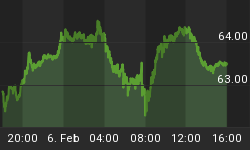Iraq's Deputy Prime Minister for Energy Affairs firmly stated the central government will take action, "including fiscal measures," if Kurdistan begins exporting oil without coming to an agreement with Baghdad. The remarks came as Minister Hussain al-Shahristani spoke at a conference in London on January 28. The Kurdish Regional Government (KRG) announced in mid-January that oil had begun to flow through a pipeline towards Turkey and that exports would officially start by the end of the month.
Shahristani argues that Kurdish oil must be exported through the State Oil Marketing Organization (SOMO), a government-owned entity responsible for marketing Iraq's oil. He reiterated that oil extracted from any region of Iraq, including Kurdistan, is the "property of the Iraqi people," meaning that it is owned by the central government.
The tough statement follows similar threats from other Iraqi government officials in recent weeks as the Kurds prepare to export oil to Turkey. On January 17 Iraqi Oil Minister Abdul Kareem Luaibi said Iraq will take legal steps to punish Turkey, Kurdistan, and the international oil companies involved in exporting oil. And on January 12 Iraqi Prime Minister Nuri al-Maliki promised to cut KRG's share of the national budget if it begins exports without approval from the central government.
The conflict escalated when Baghdad followed through on Maliki's threat. It released a draft national budget on January 15 that completely cut off funding for Kurdistan, a move meant to put pressure on the KRG to heed the central government's demands. Kurdish ministers walked out of the cabinet session when the budget was released.
The central government has been angling to prevent Kurdistan from unilaterally exporting oil to Turkey, but that does not mean Baghdad doesn't want Kurdish oil to flow. Indeed, according to the budget, the central government is requiring 400,000 barrels of oil from Kurdistan to be exported, and any shortfall will be made up by deducting from Kurdistan's share of national revenues. Kurdistan is entitled to a 17% share of revenues collected as part of Iraq's revenue sharing arrangement. The KRG argues that those funds are often not delivered.
Yet it also appears that Kurdistan is pushing for much more than merely to export oil on its own terms. Ali Balu, a former head of Iraqi parliament's oil and gas committee recently stated that within a few years "Kurdistan is going to be rid of its status as a region within Iraq," according to an article in Rudaw, a Kurdish news web site. Balu went on, "a plan is underway for Kurdistan to be an independent state in the near future."
Exporting oil from Kurdistan is a key step in the KRG's plan to eventually declare independence from Iraq. Clearly, Baghdad is not oblivious to this fact, seeing which way the winds are blowing. This is why the central government is so adamant about centralizing the oil export process. Both sides may be unwilling to give in, but the situation appears to be coming to a head, as Kurdistan expects to initiate exports within days.
By. Nick Cunningham of Oilprice.com















